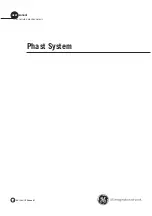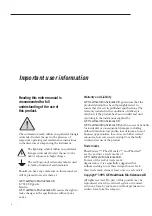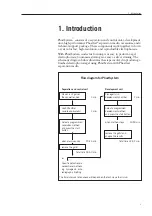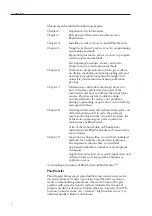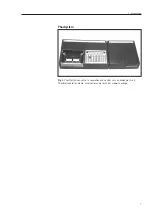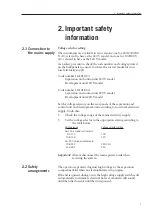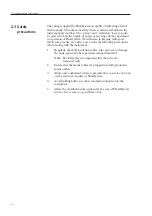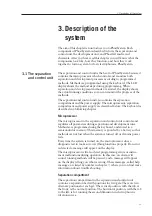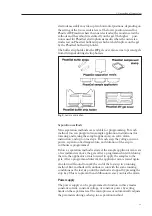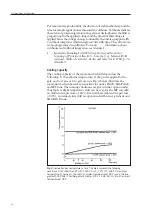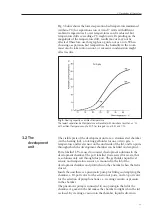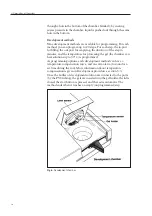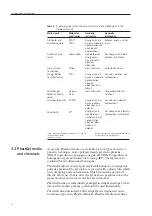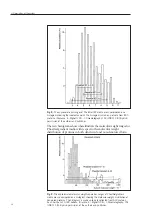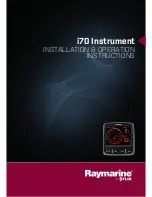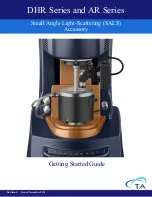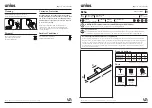
6
This users guide includes the following chapters:
Chapter 2:
Important safety information.
Chapter 3:
Description of the system; introduces you to
PhastSystem.
Chapter 4:
Installation; tells you how to install PhastSystem.
Chapter 5:
Using the keyboard; prepares you for programming
and running methods.
Separation procedures, shows you how to program
and run separation methods.
Development procedures, shows you how to
program and run development methods.
Chapter 6:
Evaluation and presentation of data; gives advice
on drying, mounting, and photographing gels and
describes procedures for molecular weight and
isoelectric point measurement using calibration
proteins.
Chapter 7:
Maintenance and trouble shooting; shows you
how to replace and clean certain parts of the
instruments and how to calibrate the temperature
sensors. Provides current trouble shooting
recommendations. If you have any problems
during programming or operation you find all help
messages listed here.
Chapter 8:
Ordering information and technical data; gives you
all information needed to order the products
mentioned in this manual. You will also find a list
of the most common spare parts required for
maintenance of PhastSystem.
A list of the technical data on PhastSystem
instruments and PhastGel media and accessories is
also included.
Chapter 9:
Separation technique files; you will find optimized
methods for a number of separation techniques.
Development technique files; you will find
optimized methods for a number of development
techniques.
Application notes; here you can file application and
technical notes covering specific techniques or
application areas.
A technological extension of PhastSystem is PhastTransfer
TM
.
PhastTransfer
PhastTransfer brings speed, reproducibility and convenience to semi-
dry electrophoretic transfer of proteins from PhastGel separation
media to immobilizing membranes. The small format of the gels
together with semi-dry transfer method minimize the amount of
reagents needed for detection. Elution efficiency is greater than 90%
for most protein systems. At 1.0 mA/cm
2
, high transfer recovery is
obtained, usually within 10–30 minutes.
1. Introduction

